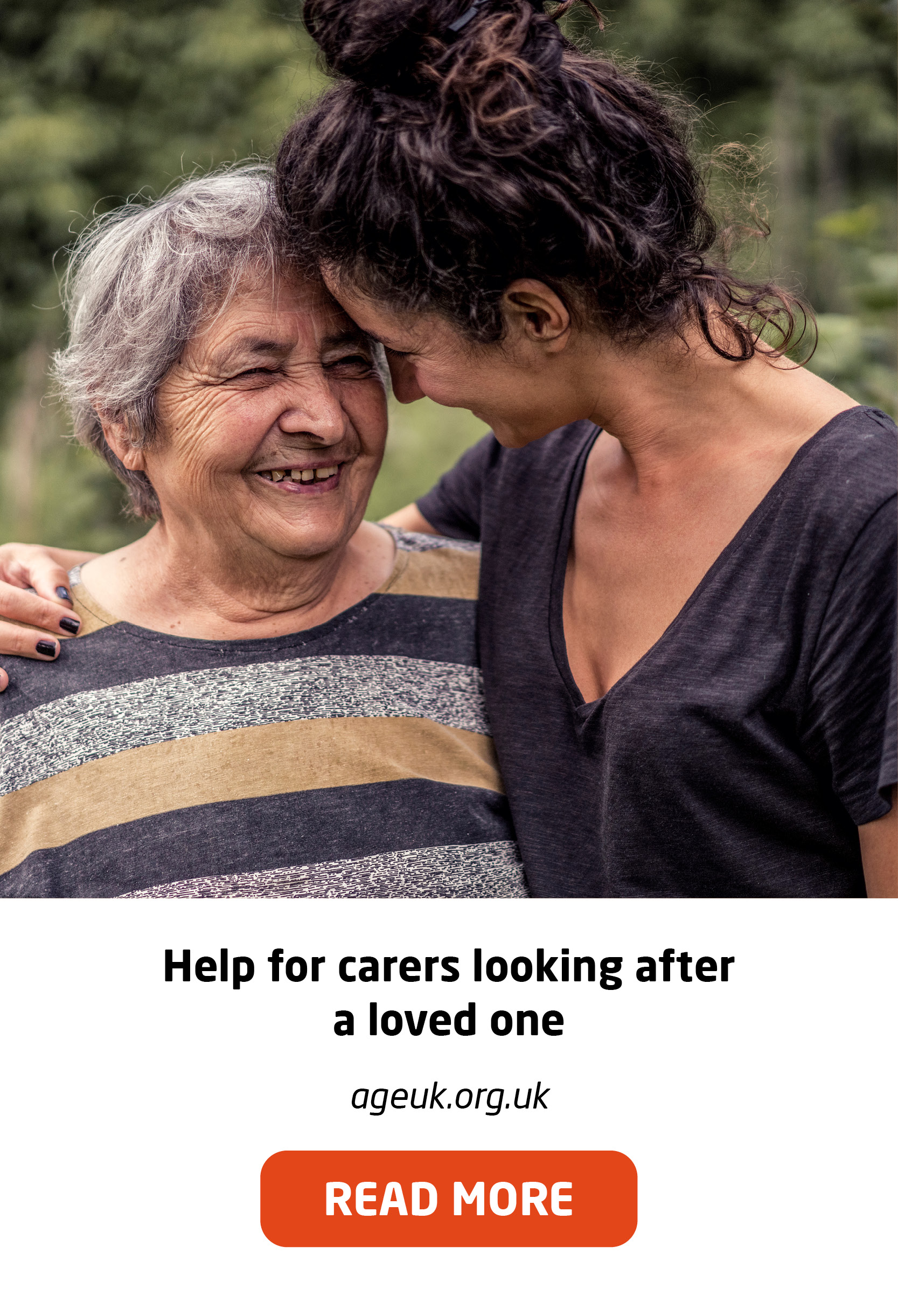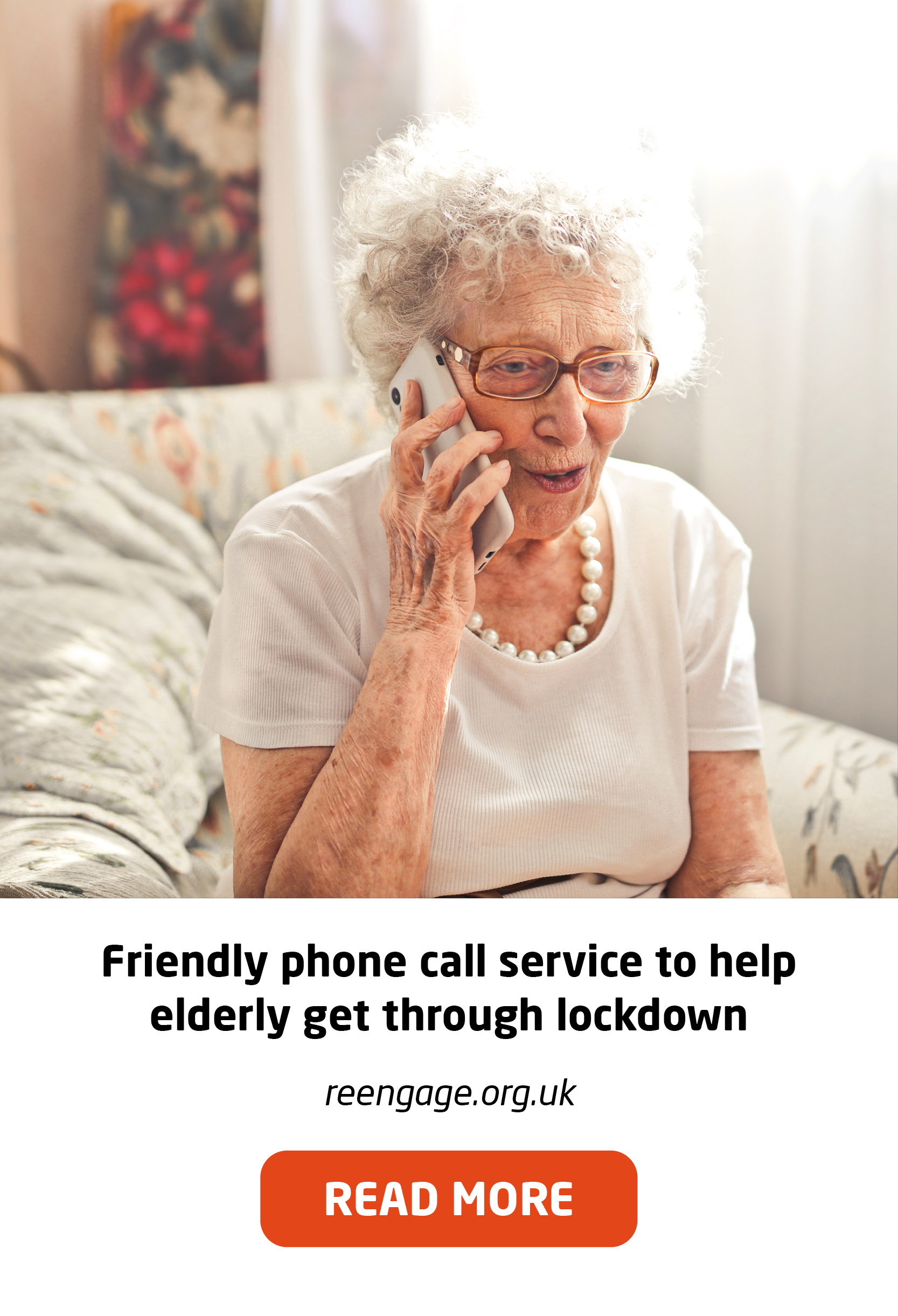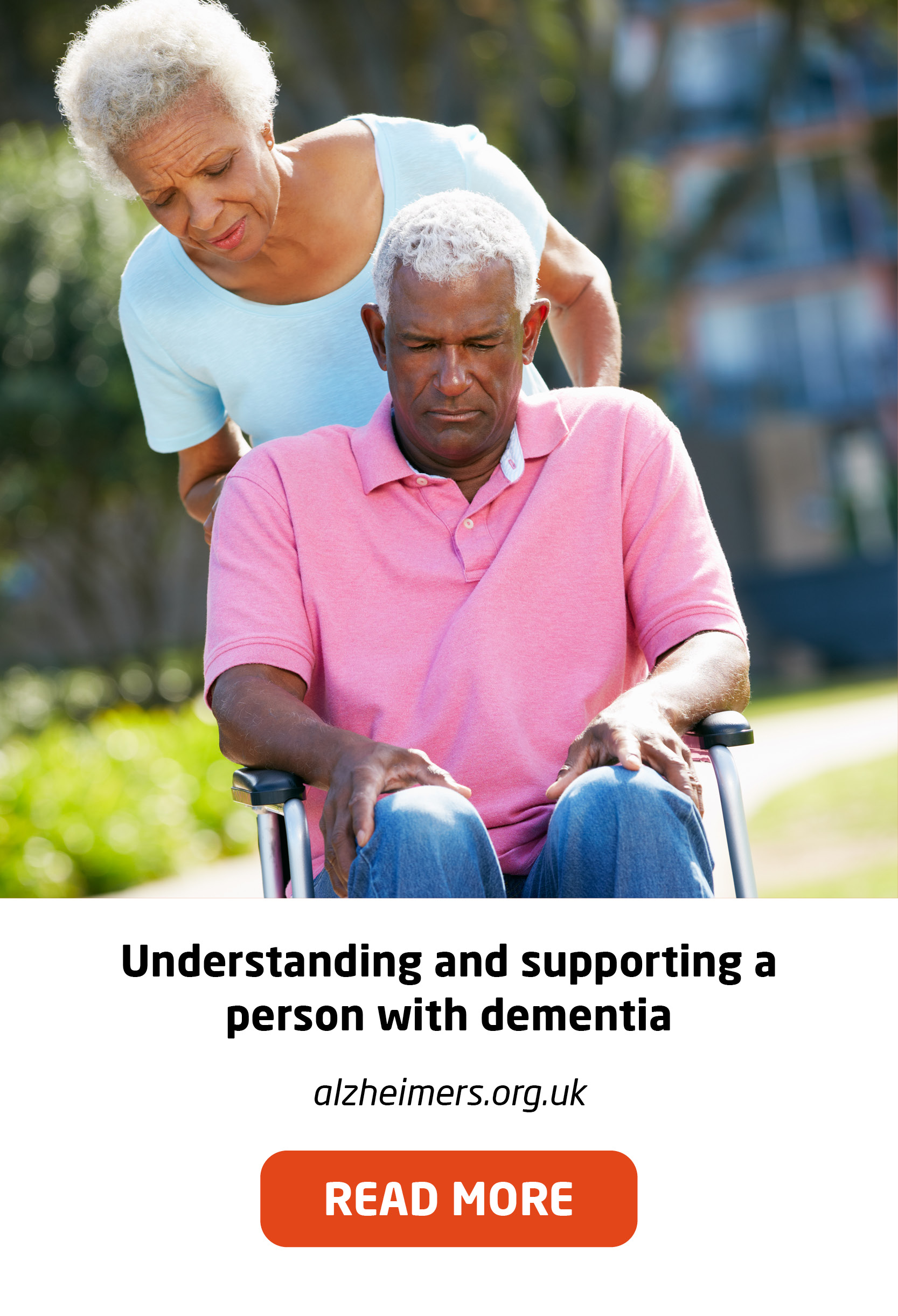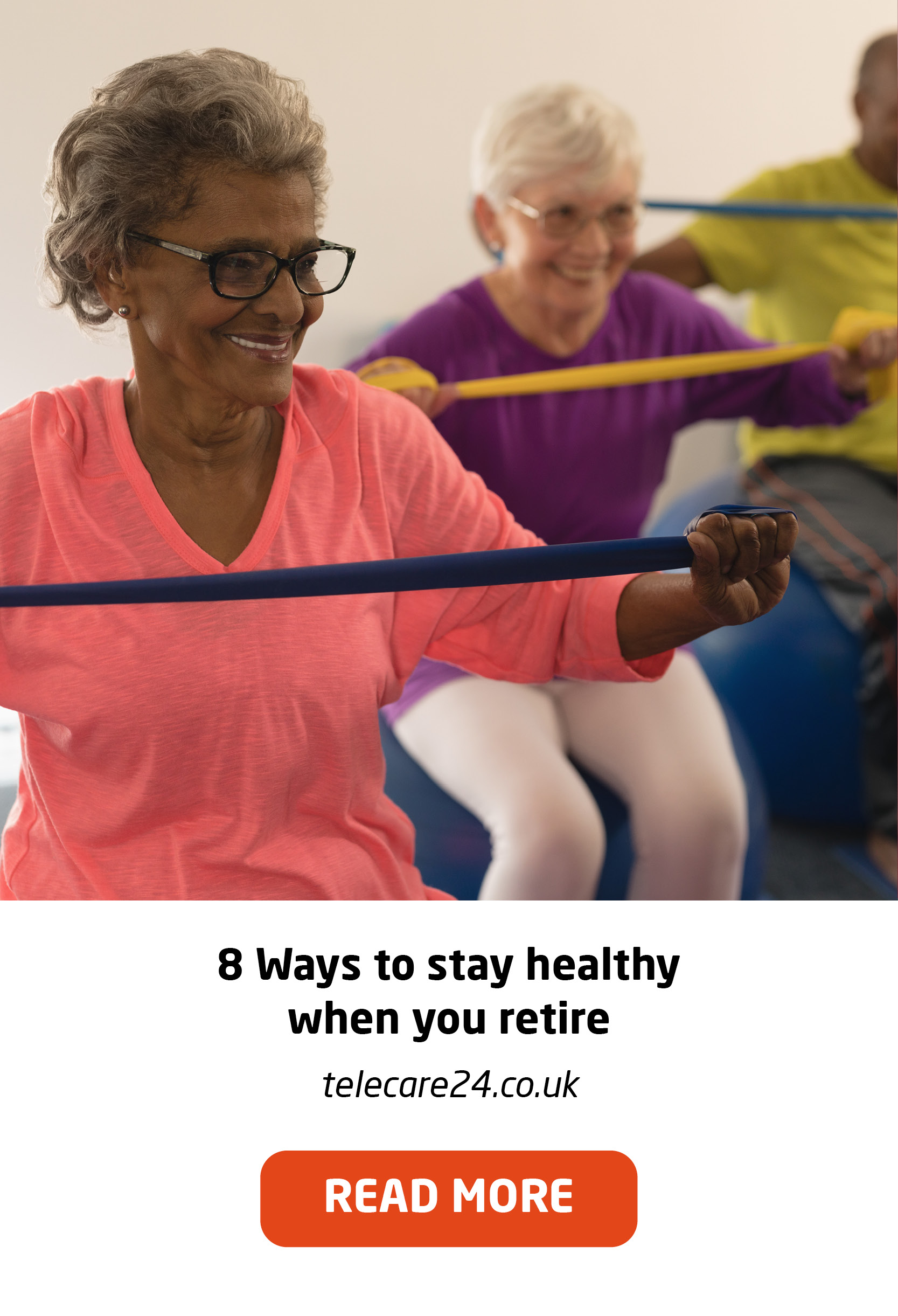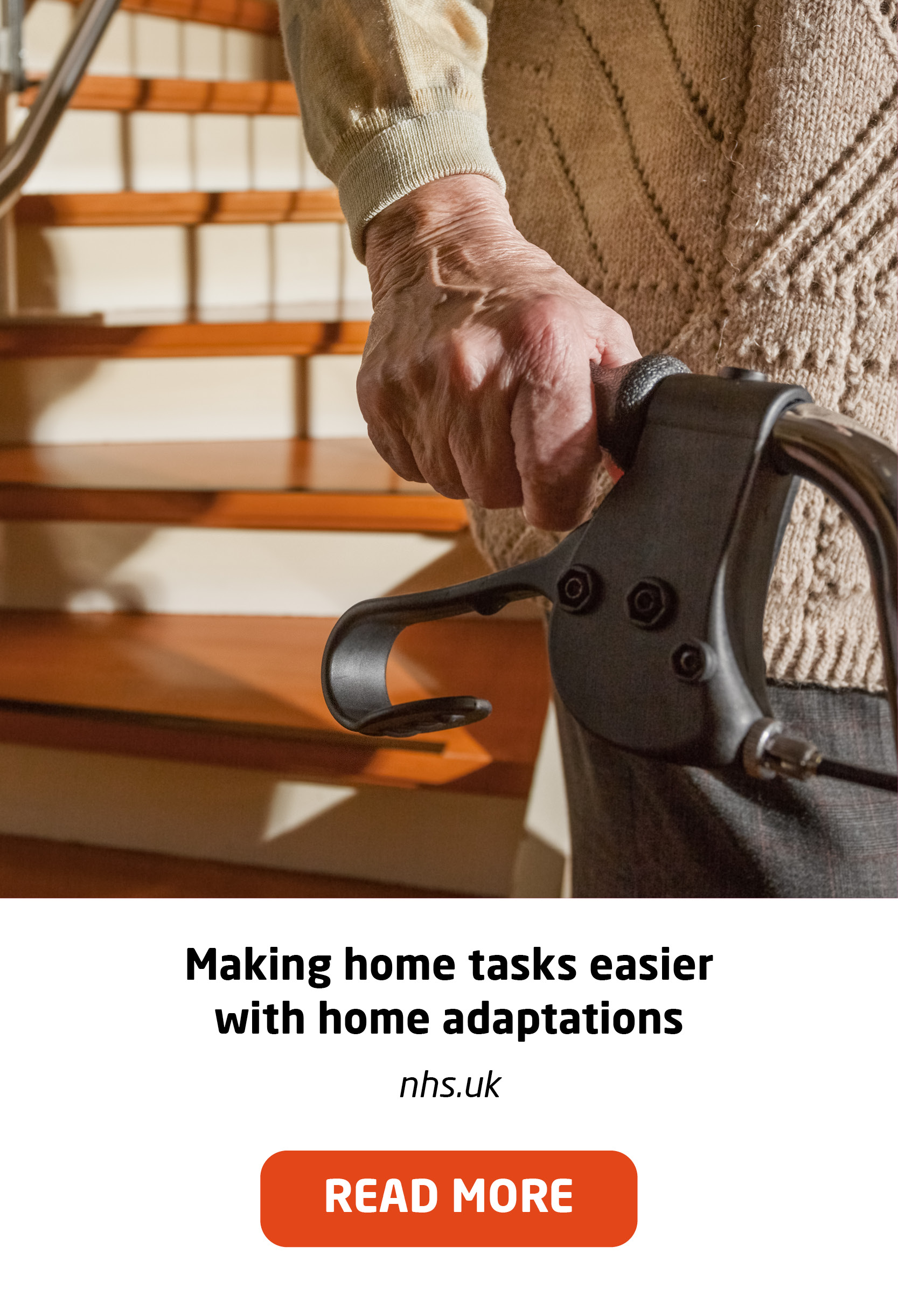One of the keys to a better version of you, mentally and physically, is sleeping well. We want all of our industry members to sleep as well as they can that’s why EIC have partnered with Sleepstation. Sleepstation is a clinically validated sleep improvement programme that can help you learn how to control and optimise your sleep to get the best sleep possible. Designed by experts and backed by science, the online service is proven to combat even the most severe insomnia. Their team will help you identify the underlying causes of your sleep problem and provide the personal support and guidance needed to improve your sleep. Sleepstation delivers remote care with a personal touch and that's what makes it so effective. Therapeutic support through Sleepstation is available to those in need and meeting our charity eligibility criteria.



So, you’re retiring
Retiring is a huge life event and can sometimes leave us feeling like we’ve lost our identity. 70-year-old Jay Cassie talks about how she prepared emotionally for retirement and the 3-point plan which helped her. Jay explains how she felt in the lead up to retirement: ‘I think like most people of any age, you think retirement is nirvana. I was thinking, “Oh wouldn’t it be fantastic to not get up early in the morning, not to be working in the evenings."'
‘The one thing you don’t plan for is what you’re going to do with all the free time you’ll have on your hands.'
'After about 3 weeks of being retired, I remember sitting having a cup of coffee and I thought, "Gosh is this it?" But then I thought: "I could live for another 30 years, which is almost half my lifetime." Jay decided to make a plan for what she wanted to do with her life, ‘ I wanted to write a book, start an online magazine for the over 50s, and teach catch-up sessions in my local primary school. Those were the 3 things I concentrated on. And I found that it really worked. It was fantastic to spend time. I found it all very fulfilling. To be honest, I’ve loved getting older.'

Jay’s preparing for retirement tips
- Plan what you’re going to do with your time. When you’ve been working very hard and you’ve been working long hours, you tend not to have had any time for hobbies.
- Start thinking about a hobby or interest that you would like to pursue.
- Find friends because your social circle gets smaller when you leave work. You can join a club, do an evening class, or simply invite a neighbour in for coffee.
- Be positive and go out and do things. When you become a retiree, you can feel like you lose your identity. But you still have a contribution to make to life as an older person.
- Don’t be negative, look for the positive things in life. I do meditation, and every night before I go to bed, I try to think of 10 good things that have happened to me.
- Try to grasp technology, it’s not the easiest of things but technology can really allow you to do a lot of things – it allows you to keep in touch with family all over the world and learn so many different things.
- Remember it is a closing of one chapter of your life and the opening of a new trajectory of opportunity
Retirement often means a loss of identity. Whether you identified as a banker, cook, or teacher, retirement can cause you to question who you are now that you’re no longer working. Other issues that accompany retirement—such as more time and less money—can also make for a difficult adjustment. Some retirees experience mental health issues, such as depression and anxiety, after they've stopped working.
Eight tips to help you adjust
1. Expect to Go Through Stages of Emotions
There’s an emotional process that most people go through when adjusting to retirement. At first, there’s a feeling of freedom. But then you may feel anxiety and boredom. You might even feel guilty for not enjoying retirement.
2. Structure Your Days
Pre-retirement, you had a routine Alarm goes off, shower, breakfast, pack a lunch, head out the door. There was probably a similar structure to the end of your days that began when you walked back over the threshold of your home. If you thrive with a schedule, you might establish a retirement routine that helps you plan your days. Experiment with various activities and time slots to see how it makes you feel.
3. Set Small Goals
Your pre-retirement life was measured in meeting milestones, such as making deadlines, finishing projects, or getting a promotion. You can still focus on goals after you retire, though they might be a little different than they were before. Think about what milestones you might want to meet in the first month, six months, or one year that you’ve been retired and write them down. Do you want to lose 10 pounds? Travel to Europe? Finish five books that you’ve been putting off? The sky’s the limit.
4. Grow Your Friendships
There’s a significant risk of becoming isolated during retirement. This can play into the restructuring of your daily routine—ask one friend to meet you for lunch every Monday, another friend to go walking through the neighbourhood with you on Wednesdays and a third pal to grab a coffee on Friday afternoons.
5. Consider an “Encore” Job
Who says that retirement from one job must mean leaving the workforce entirely? Several folks try out a less-stressful secondary career, perhaps one that’s part-time, after leaving their long-time industry. Research suggests that retirees who got a “bridge” job, another term for this type of work, are often in better health, both mentally and physically, and report higher levels of life satisfaction.
6. Create a New Budget
Even the best savers might have to make some spending adjustments after retirement. Figure out what you need in your new post-career life and what you don’t. For example, that clothing budget that you always spent on business clothes can go out the window, and replaced with a membership budget toward organizations that you wish to join.
7. Schedule Volunteer Shifts
Not willing to go back to the office grind? You can reap the same benefits by volunteering. The perks might be related to the expanded social ties that volunteering provides or the sense of purpose a person can feel by committing to charitable causes. It’s not only going to boost your psychological well-being, but it could improve your cardiovascular health and lower the risk of hypertension, too.
8. Give Yourself Flexibility to Figure It Out
You might think that you want to spend your retirement painting, cooking, and reading, but then find out that all that time spent at home doesn’t fulfil the lifestyle you dreamed about. You finally have time to experiment with what you really want. Remember retiring is not a one-way ticket to isolation or no purpose. It’s all about recapturing those things you never had a chance to do. Have a think over this festive period about ways to fill your days.


Retirement is a huge life change. It can mean slowing down spending days in the garden, reading, golfing, cooking or it could mean looking after grandchildren, volunteering or learning a skill. It is important we understand what funds we have for when we retire and how we can make the best decisions for our retirement no matter if it is close or far away. The Electrical Industries Charity recently supported Jilly, an office manager for an electrical distributor.
Jilly had worked in the sector for over 23 years and she contacted the Electrical Industries Charity for information and advice regarding retirement. She had been thinking about retirement for more than five years but because of issues with her mortgage and a recent divorce she had been unable to retire until the age of 68. Jilly had recently become aware of an old employer’s pension and wanted to combine her private pension pot with her employer’s pension and her delayed state pension. Jilly had carried out some internet research into combining her pots and managing her pensions but felt overwhelmed with the advice online and was unsure of a lot of its legitimacy.
The Charity welfare team signposted Jilly to The Pensions Advisory Service (TPAS) which provides free, impartial guidance about pensions. TPAS cover all workplace, general, personal, stake holder and state pension schemes and can handle general and specific enquiries. TPAS were able to advice Jilly on combining her pots and how to make them work best for her and her retirement plans. The Electrical Industries Charity also advised Jilly to contact the governmental pension service as she had deferred her state pension for more than one year.
Alongside TPAS and the governmental pension service Jilly’s Charity caseworker also directed her to the Money Advice Service. The Money Advice Service is a free service set up by the government to help manage finances. Here, Jilly could find an independent financial advisor to ensure her pension was working as hard it could for her needs. With the help of a financial advisor Jilly is looking forward to a financially comfortable future. Jilly has downsized and is now living on the coast, a forever dream of hers. The Electrical Industries Charity have now closed Jilly’s case and wish her the best of luck in her retirement.
If you need some guidance and advice the Electrical Industries Charity can help you. Please contact the welfare team on 0800 652 1618 or This email address is being protected from spambots. You need JavaScript enabled to view it.


Sometimes we may feel we aren’t ready to retire and although work may be tiring it can seem, after a lifetime of going to work, daunting to retire. We may think we aren’t able to retire so continue to work without even considering the possibility of retirement. Mike, a power station employee, approached the Electrical Industries Charity after suffering with anxiety and stress at work. Mike had worked within the station for decades and was nearing his mid-sixties.
Mike was struggling with his work life balance. The plant had recently employed new management who made redundancies and Mike found the period very stressful. To ensure he was not made redundant and prove his value Mike had begun to work very long hours sacrificing his personal life completely. Mike had begun to experience burnout and was increasingly tired, irritable, and anxious. Mike’s home life suffered, and he was often missing family occasions because of work. Once the redundancy period passed Mike felt he was unable to reduce his working hours and continued to keep long hours in the office. This worsened Mike’s stress levels, and his physical and emotional well-being were really suffering.
The Electrical Industries Charity referred Mike for counselling, and he found this immeasurably helpful. During counselling sessions Mike worked through coping strategies but also found he valued his home life far more than work. After eight sessions with a therapist, six funded by the Electrical Industries Charity and two self-funded, Mike had decided to re-evaluate his finances and retire.
Mike and his wife had already paid off their mortgage and Mike was able to take his occupational pension. After reviewing their finances with a financial advisor and Mike’s wife continuing to work part-time, they decided to downsize and were quickly able to sell their home and move closer to their grandchildren. Since retiring Mike no longer feels stressed nor anxious, his and wife’s relationship has greatly improved, and Mike has taken a keen interest in tai chi. With the help of counselling Mike was able to see how work had been affecting him and his therapy gave him a huge sense of clarity and relief. Mike realised deciding to retire was one of the easiest decisions he had ever made and is looking forward to many more year’s stress and anxiety free.
The Electrical Industries Charity can support your emotional wellbeing needs. If you need assistance please contact This email address is being protected from spambots. You need JavaScript enabled to view it. or 0800 652 1618.


Christmas time is a period in which we gather our friends and family to celebrate the year past and toast to the new year as well as share joy, memories and plenty of treats. While for a lot of us this holiday period is a joyous occasion it can make some of us feel more lonely than normal. It is no surprise that the elderly can feel isolated not only at Christmas but throughout the whole year.
Older people are especially vulnerable to loneliness and social isolation – and it can have a serious effect on health. According to Age UK, more than 2 million people in England over the age of 75 live alone, and more than a million older people say they go for over a month without speaking to a friend, neighbour, or family member. People can become socially isolated for a variety of reasons, such as getting older or weaker, leaving the workplace, the deaths of spouses and friends, or through disability or illness. Feeling alone and vulnerable, can lead to depression and a serious decline in physical health and wellbeing. There's a stigma surrounding loneliness, and older people tend not to ask for help because they have too much pride.

According to the latest analysis of the English Longitudinal Study of Ageing, older people aged 50 and over living in England are:
- 5.5 times more likely to be often lonely if they don’t have someone to open up to when they need to talk compared with older people who have someone
- 5.2 times more likely to be often lonely if they are widowed compared with older people who are in a relationship
- 3.0 times more likely to be often lonely if they feel they are never able to do the things they want
- 2.3 times more likely to be often lonely if they have money issues that prevent them doing the things, they want to do than people who do not have money issues
- 1.6 times more likely to be often lonely if they live alone than older people who live with somebody
- 76% of over 50s said they often feel lonely

Smile, even if it feels hard
Grab every chance to smile at others or begin a conversation – for instance, with the cashier at the shop or the person next to you in the GP waiting room.
Invite friends for tea
If you're feeling down and alone, it's tempting to think nobody wants to visit you. But often friends, family and neighbours will appreciate receiving an invitation to come and spend some time with you. If you'd prefer for someone else to host, Contact the Elderly is a charity that holds regular free Sunday afternoon tea parties for people over the age of 75 who live alone. You'll be collected from your home and driven to a volunteer host's home for the afternoon. Apply online or call Contact the Elderly on 0800 716 543.
Keep in touch by phone
Having a chat with a friend or relative over the phone can be the next best thing to being with them. Or you can call The Silver Line, a helpline for older people set up by Esther Rantzen, on 0800 4 70 80 90. You can also call Independent Age on 0800 319 6789, Age UK on 0800 055 6112, or Friends of the Elderly on 0300 332 1110 to receive a weekly or fortnightly friendship call from a volunteer who enjoys talking to older people.
Learn to love computers
If your friends and family live far away, a good way to stay in touch, especially with grandchildren, is by using a personal computer. You can share emails and photos with family and friends, have free video chats using services such as Skype, FaceTime or Viber, and make new online "friends" or reconnect with old friends on social media sites such as Facebook or Twitter and website forums. Libraries and community centres often hold regular training courses for older people to learn basic computer skills – as well as being a good place to meet and spend time with others. Local branches of Age UK run classes in computing to help older people get to grips with smartphones, tablet computers and email.
Get involved in local community activities
These will vary according to where you live, but the chances are you'll have access to a singing or walking group, book clubs, bridge, bingo, quiz nights and faith groups.
The Silver Line helpline (0800 470 8090) can let you know what's going on in your local area.
Fill your diary
It can help you feel less lonely if you plan the week ahead and put things in your diary to look forward to each day, such as a walk in the park or going to a local coffee shop, library, sports centre, cinema or museum. Independent Age has published a guide about what to do if you're feeling lonely, which includes tips about activities you could try.
Download: "If you're feeling lonely. How to stay connected in older age"
or order a free print copy by calling 0800 319 6789, or email: This email address is being protected from spambots. You need JavaScript enabled to view it.

Get out and about
Don't wait for people to come and see you – travel to visit them. One advantage of being older is that public transport is better value. Local bus travel is free for older people across England. Contact your local authority for more information on how to apply. Use this State Pension calculator to find out the exact date when you can apply for your free bus pass. For longer distances, train and coach travel can be cheap, too, especially if you book in advance online and use a Senior Railcard.
The Royal Voluntary Service can put you in touch with volunteers who provide free transport for older people with mobility issues or who live in rural areas with limited public transport.
Help others
Use the knowledge and experience you have gained over a lifetime to give something back to your community. You'll get lots back in return, such as new skills and confidence – and, hopefully, some new friends, too. Examples are Home-Start, Sure Start, helping in a local charity shop or hospital, Citizens Advice, and school reading programmes. Find out how to volunteer in your area on the NCVO website
Join the University of the Third Age
The University of the Third Age (U3A) operates in many areas, offering older people the chance to learn or do something new. Run by volunteers, U3A has no exams. Instead, it gives you the chance to do, play or learn something you may never have done before, or something you haven't considered since your school days. U3A is also a great place to meet people and make new friends.
Find your nearest U3A
There are lots of charities that you can reach out to if you are feeling lonely or just want someone to chat to. AGEUK offer a wide range of services to help you combat loneliness.
 Some people may be aware they're lonely, but just not know what they can about it. If you suspect someone you know may be lonely, you can help by: Be there. Simply being there for them can let them know that someone cares. Don't be afraid to ask them how they are feeling or if there's anything you can do to help. Having someone who is willing to listen could be a great comfort.
Some people may be aware they're lonely, but just not know what they can about it. If you suspect someone you know may be lonely, you can help by: Be there. Simply being there for them can let them know that someone cares. Don't be afraid to ask them how they are feeling or if there's anything you can do to help. Having someone who is willing to listen could be a great comfort.
Be patient. When someone's lonely, particularly if it's associated with poor mental health or physical health, they may get irritable or feel misunderstood by others. You may need to offer gentle assurance.
Encourage and support. Reassure them that it's possible to feel better with the right help. They may need some support to make new social connections or access services designed to tackle loneliness.
You can also help to make an active difference to someone’s everyday life by becoming a volunteer:
https://www.campaigntoendloneliness.org/volunteer

If you would like to volunteer for a charity that directly supports older people who might be lonely, look at our management group partners:
https://www.independentage.org/get-involved/how-can-i-volunteer
https://volunteering.royalvoluntaryservice.org.uk/volunteering
https://www.sense.org.uk
https://www.thesilverline.org.uk/get-involved/volunteering

Mental health problems in older adults are very common. Depression is the most common, affecting around one in four older people, and as many as two in five people living in care homes. Anxiety affects around one in 10 older people. As you get older, painful events or changes in your situation may make you more vulnerable to low mood, depression and anxiety, and other mental health conditions. For example:
- Bereavement and loss
- Loneliness
- Becoming a carer
- Loss of independence
- Finding it more difficult to do the things you used to do
- Feeling more vulnerable as you get older – at risk of scams for example
- Loss of daily routine and social contact following retirement
- Money worries
- Moving to a new house, including moving to a new area or moving into a care home

- Talk to your GP
- Tell someone you trust
- Call an emotional support helpline like Samaritans (116 123) or The Silver Line (0800 4 70 80 90)
- Call a specialist mental health helpline like Rethink (0300 5000 927) or Mind (0300 123 3393)
- You could also try the self-help advice and tools on the NHS website, such as the NHS mood self-assessment tool and Every Mind Matters
If you need help to look after yourself
If you’re finding it difficult to look after yourself, make sure you’re getting enough support. Ask your local council for a care needs assessment, which will work out what your care needs are and how they might be met.
If you're worried about money
If money worries are making you feel anxious, make sure you’re claiming all the benefits you’re entitled to. You can visit the Mental Health and Money Advice Service for advice and help.
Help with specific problems
If you’re worried about a specific problem or you’ve been through a difficult situation, there may be a specialist organisation that can help. For example:
- Cruse Bereavement Care
- Relate for relationship advice
- Support groups for alcohol or drug dependency such as Alcoholics Anonymous or Narcotics Anonymous – see our guide Coping with alcohol or drug misuse for details of more organisations.
Independent advocacy
If you need help to express your views or to get the support you need, you may benefit from the help of an independent advocate. Ask your local council for details of advocacy services in your area or contact the Older People's Advocacy Alliance. In some situations, you may have a legal right to an advocate.
Ways to look after your mental health
There are things you can do to improve your mental health and help you stay well. For example:
- Stay connected
- Keep active
- Watch your diet
- Increase your sense of purpose
- Go outside
- Get enough sleep
If you are struggling particularly with depression this guide is useful.

Christmas is the loneliest time of the year for over 1.5 million older people, with those who have lost a loved one struggling the most. Age UK's research found that more than three-quarters (77%) of over 65s agree that the first Christmas after losing someone you love is the hardest. Over 200,000 older widows and widowers not looking forward to the festive season because they will be alone. More than three million older people in the UK aren't looking forward to Christmas this year. Over 700,000 (23%) say it brings back too many memories of people who have died and of happier times. Whilst most of us will sit down with family and friends to enjoy an annual Christmas dinner this won't be the case for everyone. Almost 870,000 older people will be eating dinner alone on Christmas day this year, including around one in 10 people over 80.
Ways to help out at Christmas
Volunteer your Christmas Day to a care home – take some time on Christmas Day to help out with Christmas dinners at your local care home, pull crackers with residents and help to make the day merry and bright. Invite your elderly neighbour for Christmas Dinner at your house – if you know your neighbour is going to be alone this Yuletide invite them round, wrap a gift for them under the tree and pass them the monopoly board. They’ll feel great and you will too. Join the reengage community Christmas initiative - Community Christmas is our Christmas campaign. It aligns with our work throughout the year to help alleviate loneliness in older people through social gatherings. Encourage anyone of any age who will be alone on Christmas Day to use their website to find something in their area they can go to.


Benefits and eligibility, benefits, and calculator
One in four elderly people struggling financially as billions of benefits go unclaimed. Nearly three million pensioners are having money problems, with hundreds of thousands unable to pay regular bills or keep their homes warm, survey finds. A survey of more than 1,300 people over the age of 65 suggested that more than half a million (572,600) are unable to keep their homes adequately warn, while 286,300 are unable to pay regular bills and 708,800 are unable to keep their homes damp free.
Almost a million (945,100) would be unable to replace a cooker if it broke down, the research found, and well over a million (1,299,600) have no access to a car and can’t afford a taxi. The latest Government figures show that 800,000 pensioners are living in “material deprivation”, unable even to afford the basics. Last year the number of pensioners living below the poverty line rose to 1.9 million.
Click here to discover AgeUK's key findings about finances in later life.
Age UK have a great tool to explore way to get help with benefits, managing your money, avoiding scams and dealing with legal issues.
It can be difficult to talk about money with elderly relatives especially with the thought of impending care home fees or carers.
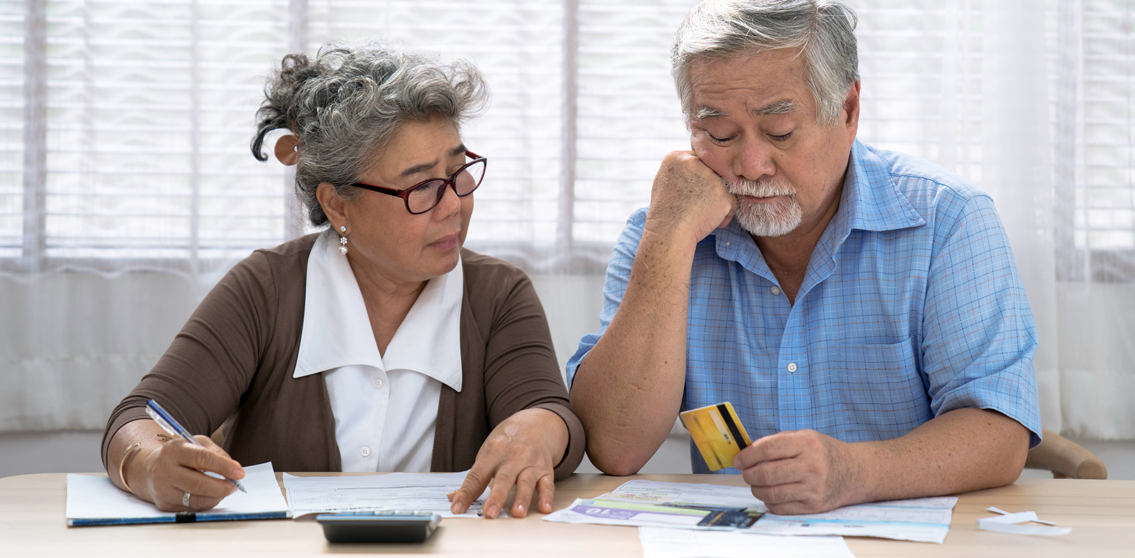
Tips on what to talk about
- Who will care for them when they’re older?
- Where would they like to live if they can no longer live at home?
- Who might they like to make decisions for them if they no longer can?
- What is their vision of how their end of life care will look?
- Are they struggling with their finances? If so, what would they like to do about it?
- Are they experiencing difficulties with their memory?
What’s the best way to get the conversation started?
Keep things general. Talk about others who have been through similar experiences recently relating to care and how they are dealing with it - the good and the bad. You could talk about what you would want when you are older so that the conversation remains open and inclusive. If you bring the subject up early enough, you can speak very generally about care homes. You can gauge your parents’ wishes then, so you can act appropriately when the time comes.

Your will tells everyone what should happen to your money, possessions, and property after you die (all these things together are called your ‘estate’). If you don’t leave a will, the law decides how your estate is passed on – and this might not be in line with your wishes.
Your will tells people two very important things:
- Who should have your money, property and possessions when you die?
- Who will be in charge of organising your estate and following the instructions you leave in your will – this person is called your ‘executor’, and you can name more than one person if you want to.
Make sure your will is legally valid.

A document is a valid will if it:
Says how your estate should be shared out when you die.
Was made when you were able to make your own decisions and you weren’t put under pressure about who to leave things to.
Is signed and dated by you in the presence of two adult, independent witnesses, and then signed by the two witnesses in your presence – the witnesses can’t be people who are going to inherit anything from you (or their husband/wife or civil partner.)
How to start making a will:
Step 1 – Make a plan
Start by thinking about what you want to leave to whom and then talk to your family – they might have some suggestions you haven’t thought of.
Once you have a plan look at the different options for making a will.
Step 2 – Get your will written
There are several ways you can get a will written.
The best option for you depends on how complicated your wishes are:
- A simple will - can cost between £144 and £240
- A complex will – can cost between £150 and £300. It may be more complex as you have been divorced and have children
- A specialist will – that involves trusts or oversea properties, or you want tax planning advice – expect to pay a minimum of £500 to £600 according to Which?

You can help make or make decisions about someone’s property and money if they appointed you using an enduring power of attorney (EPA). The person who appointed you is called the ‘donor’ - you are their ‘attorney’. Any decision you make on the donor’s behalf must be in their best interests. You’ll need to check if the donor’s given you specific instructions or guidance in the EPA document that You can start using an EPA at any time if the EPA is legal and the donor gives you permission.
You’ll be responsible for helping the donor make decisions about their finances. Depending on their instructions you’ll help manage things like their:
- Money and bills
- Bank and building society accounts
- Property and investments
- Pensions and benefits
You must register the EPA when the donor starts to lose or has lost their mental capacity.
You must still involve the person in making decisions whenever possible and only make decisions on their behalf which are in their best interests.
Stop being an attorney:
The EPA will end if the donor cancels it or they die. You can stop being an attorney by choice. You must register the enduring power of attorney (EPA) as soon as the donor starts to lose mental capacity.
- Tell the donor, their family members, and other attorneys you intend to register the EPA
- Apply to register the EPA
- Pay the fee


As you grow older you may find your home is no longer suitable for your needs and it may need some modifications to suit you and your changing lifestyle. Home adaptations are changes you can make to your home. These make it safer and easier to move around and do everyday tasks. Your local council offers a service that assesses your home and recommends changes to help. Having a home assessment is free.
These changes can be small or big and include:
- Fitting a stairlift or a banister on the stairs
- Adding a bath lift, walk-in shower, or a rail you hold to pull yourself out of the bath (grab rail)
- Widening doorways
- Lowering kitchen worktops
- Putting in an outdoor ramp or step rail
- Security, such as outside lights and intercom systems
- The assessment might also recommend household equipment and gadgets to make life easier
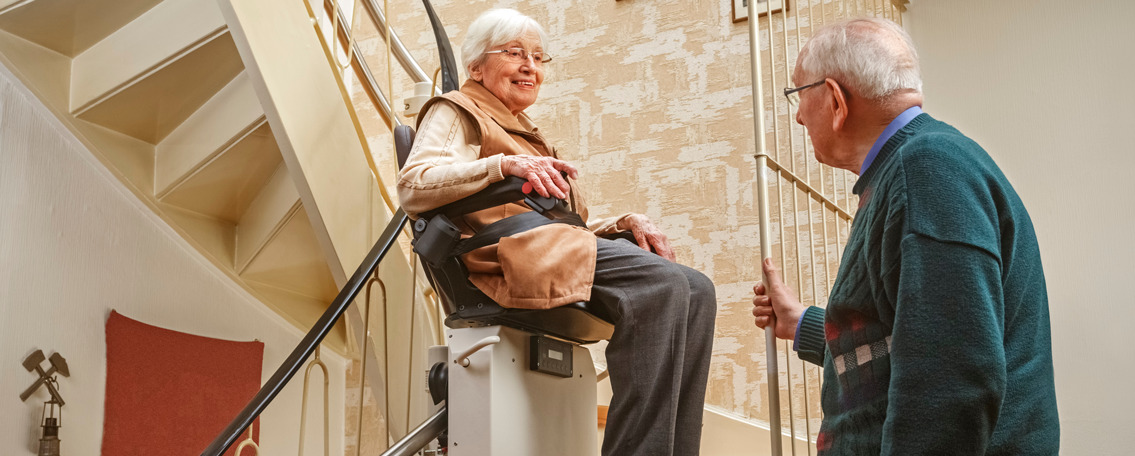

If you, or someone you know, needs help to do everyday tasks or you're worried about falling, ask social services for a home assessment. You can call your local council or do it online.
What happens during the assessment?
- An occupational therapist will visit you at your home. They'll ask you questions and walk around with you to see what you struggle with. You'll work out what you need together.
- Make sure you tell them everything you find difficult, even small things such as opening a cupboard.
- Assessments usually take at least an hour.
- You might also be referred for a needs assessment to see if you could benefit from extra help at home.
- Have someone with you
- Ask a friend or relative to be with you. It might help if you're not confident explaining your situation. They can also take notes for you.
- You can use an advocate if you can't get a friend or relative. These are people who sit with you during an assessment and speak for you. They can also help you fill in forms. They're often free. Find an advocate in your area.
Get help with costs of home adaptions
Small adaptations are often free. Your council should pay for each adaptation that costs less than £1,000.
This usually includes things such as:
- Grab rails
- A concrete ramp or steps
- Lights that come on when someone is at your front doo
- You might be able to get help with costs
For expensive adaptations, like fitting a wet room or widening doors, you can try to get a grant from:
- Disabled Facilities Grant
- Independence at Home
- A Home Improvement Agency (HIA) can help you find schemes to help with the cost of adaptations. Find out if there's an HIA in your area.
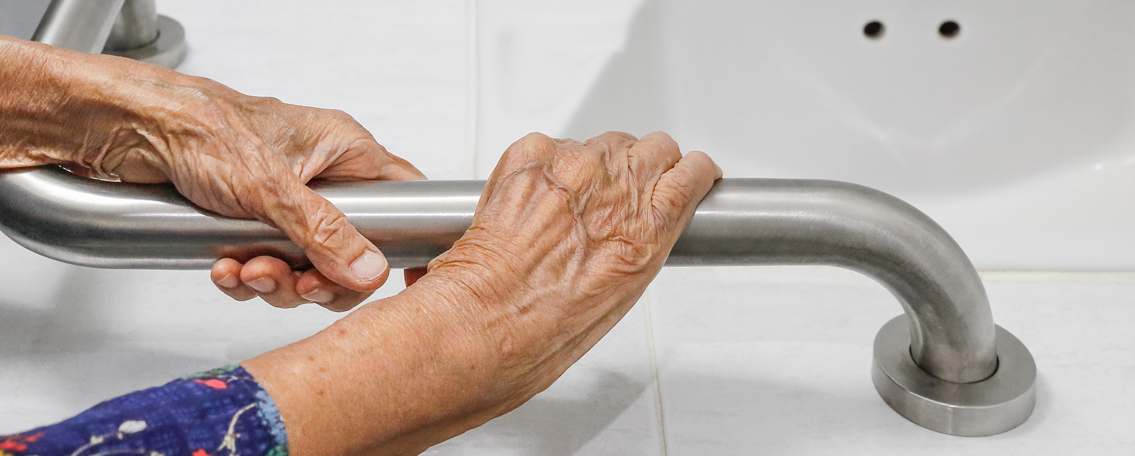

Dementia and Alzheimer’s can have a huge impact on your mental and physical health and can mean that you need to make modifications to your home or move into a different home.
Dementia is an umbrella term used to describe a range of progressive neurological disorders, that is, conditions affecting the brain. There are over 200 subtypes of dementia, but the five most common are: Alzheimer’s disease, vascular dementia, dementia with Lewy bodies, frontotemporal dementia, and mixed dementia. Some people may have a combination of different types of dementia and these are commonly called mixed dementia.
What causes dementia?
The brain is made up of nerve cells (neurones) that communicate with each other by sending messages. Dementia damages the nerve cells in the brain so messages can’t be sent from and to the brain effectively, which prevents the body from functioning normally. Regardless of which type of dementia is diagnosed and what part of the brain is affected, each person will experience dementia in their own unique way.
Dementia in the UK
Dementia is a global concern, but it is most often seen in wealthier countries, where people are likely to live into very old age. The Alzheimer’s Society (2014) reports there are over 850,000 people living with dementia in the UK today. Of these, approximately, 42,000 are people with young onset dementia, which affects people under the age of 65. As a person’s age increases, so does the risk of them developing dementia. It is estimated that the number of people living with dementia in the UK by 2021 will rise to over one million. Rates of diagnosis are improving but many people with dementia are thought to still be undiagnosed.
There are lots of different types of dementia. Dementia UK have a great resource to find out more about each type.

Some commonplace symptoms of dementia:
- Memory loss
- Difficulty performing familiar tasks
- Problems with language
- Disorientation to time and place
- Poor or decreased judgement
- Problems with keeping track of things
- Misplacing things
- Changes in mood or behaviour
- Trouble with images and spatial relationships
- Withdrawal from work or social activities
Dementia UK have a whole range of ways they can support you with a dementia diagnosis or if you are caring for someone with a diagnosis.
Caring for someone with dementia can be challenging and stressful. But with the right support, it can be rewarding and often satisfying.
More info - Types and Symptoms of Dementia

You may not think of yourself as a carer, particularly if the person with dementia is a partner, parent, or close friend. But both you and the person with dementia will need support to cope with the symptoms and changes in behaviour.
It's a good idea to:
- Make sure you're registered as a carer with your GP
- Apply for a carer's assessment
- Check if you're eligible for benefits
- Find out about training courses that could help you
- Find out about local support groups
Get a carer's assessment
If you care for someone, you can have an assessment to see what might help make your life easier. This is called a carer's assessment.
A carer's assessment might recommend things like:
- Someone to take over caring so you can take a break
- Training in how to lift safely
- Help with housework and shopping
- Putting you in touch with local support groups so you have people to talk to
- A carer's assessment is free and anyone over 18 can ask for one
Family and friends can help in a variety of ways, from giving you a break, even if it's for only an hour, to taking the person with dementia to an activity or memory café.

Charities and voluntary organisations provide valuable support and advice on their websites and via their helplines:
Alzheimer's Society's National Dementia Helpline on 0300 222 1122
Age UK's Advice Line on 0800 055 6112 (free)
Independent Age on 0800 319 6789 (free)
Dementia UK Admiral Nurse Dementia helpline on 0800 888 6678 (free)
Carers Direct helpline on 0300 123 1053 (free)
Carers UK on 0800 808 7777 (free)






